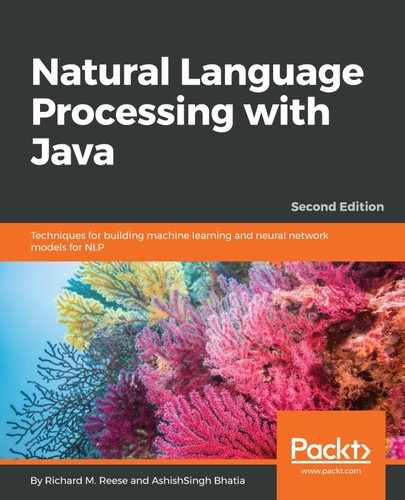Term weighting deals with evaluating the importance of a term with respect to a document. A simple way is to think of this is that the term that appears more in the documents is an important term, apart from the stop words. A score from 0-1 can be assigned to each document. A score is a measurement that shows how well the term or query is matched in the document. A score of 0 means that the term does not exist in the document. As the frequency of the term increases in the document, the score moves from 0 toward 1. So, for a given term X, the scores for three documents, d1, d2, and d3 are 0.2, 0.3, and 0.5, respectively, which means that the match in d3 is more important than d2 and d1 is least important for the overall score. The same applies for the zones as well. How to assign such a score or weight to the term requires learning from some training set or continuously running and updating the score for terms.
The real-time query will be in the form of free text, and not in the form of a Boolean expression; for example, a Boolean query would be able to answer whether something looks like A and B, but not C, whereas a free text query would check whether A is with B and C is absent. So, in free text, a scoring mechanism is required, where the score of each individual term is summed up and the weight is assigned to the term with respect to the document. The simplest way is to assign a weight equal to the number of times the term appears in the document. This weighting scheme is referred to as term frequency, and is normally written as  , where tf is term frequency, t is term, and d is document.
, where tf is term frequency, t is term, and d is document.
